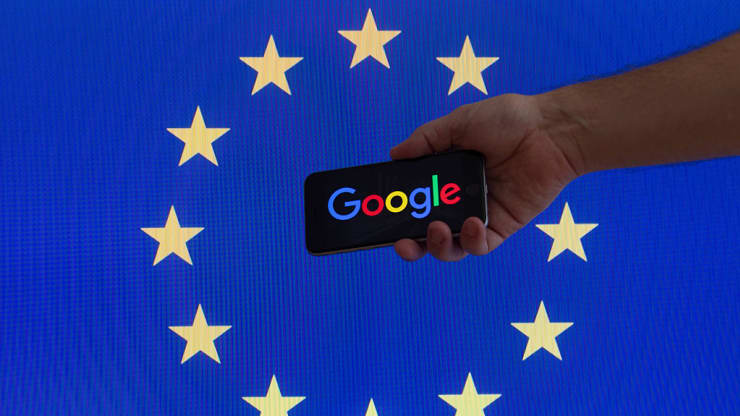Google loses antitrust battle with EU as court upholds 2017 order to pay $2.8 billion fine

The EU’s General Court ruled Wednesday that the European Commission was right in fining Google for an antirust breach — in what represents a landmark moment for EU policy which could impact the business models of major tech players.
The ruling comes after the European Commission, the executive arm of the EU, said in 2017 that Google had favored its own comparison shopping services and fined the company 2.42 billion euros ($2.8 billion) for breaching antitrust rules. Alphabet-unit Google contested the claims using the EU’s second-highest court.
“The General Court finds that, by favoring its own comparison shopping service on its general results pages through more favorable display and positioning, while relegating the results from competing comparison services in those pages by means of ranking algorithms, Google departed from competition on the merits,” the court said in a press release Wednesday.
In addition, the court also confirmed the fine at 2.42 billion euros. “The General Court concludes its analysis by finding that the amount of the pecuniary penalty imposed on Google must be confirmed,” the court added.
Wednesday’s verdict can be appealed and taken to the EU’s highest court. The European Commission and Google were not immediately available for comment when contacted by CNBC on Wednesday.
The legal precedent
This is not the first time that the EU’s General Court has ruled on an antirust case brought by the European Commission and directed at a tech giant.
The chamber ruled in July 2020 that the commission had failed to prove that the Irish government had given a tax advantage to Apple — this was after the Brussels-based institution ordered the Republic of Ireland to recoup 13 billion euros from the iPhone maker in 2016.
The court ruling marked a significant blow to Margrethe Vestager, the EU’s competition chief, and her team. It essentially said they didn’t do a good job in proving their case.
Vestager decided to appeal the decision, pushing it to the EU’s highest court, the European Court of Justice, where the case is yet to be ruled upon.
At the time, the ruling from the General Court also shone a light on one of the main challenges for European competition policy: In antitrust cases, it’s the commission that has to bare the brunt of the evidence and not the defendant.
Impact for Big Tech?
The EU is currently discussing how to toughen its rulebook to ensure fairer competition across the 27 member nations.
Thomas Vinje, an antitrust partner at law firm Clifford Chance, told CNBC Tuesday that the General Court’s ruling “will put the wind in the sails of the DMA [Digital Markets Act].”
The DMA is one of the big legislative pieces that the EU is working on and which, when approved, will look to tackle any behavior that closes off European markets. It could lead to changes in parts of the business models of the tech giants.
One of the potential changes is ending self-preferencing — when, for instance, app search results on an Apple product display options developed by the tech giant. The idea is to give smaller app developers the same chance of being found and chosen by consumers. Legislators are also looking at restricting target-advertising to bring more privacy to users. This could also affect how Big Tech operates.
Previous Story
- JPMorgan turns bullish on UK stocks for the...
- ECB member says inflation could be nearing the...
- European markets start the new trading week on...
- Hybrid cars' green credentials under scrutiny
- Toyota ranked one of worst major automakers for...
- Climate change: What are the big polluters doing...
- Polish PM accuses EU of blackmail as row...
- EU to impose universal smartphone charger in blow...